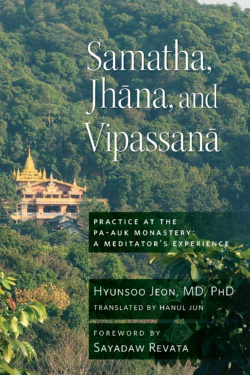Hyunsoo Jeon

Born 1956 in Pusan, Hyunsoo Jeon became a psychiatrist and a psychotherapy specialist after graduating from Kyung-nam High School and Pusan National University School of Medicine, and receiving neuropsychiatry training at the Soon Chun-hyang University Hospital. He attended Hanyang University Medical School where he obtained his master’s and doctoral degrees. He was introduced to Buddhist teachings two years after becoming a neuropsychiatry resident. After that, he met with patients and studied Buddhism concurrently, using Buddhist wisdom to aid him in treating his patients. The use of Buddhist wisdom was so effective that he detailed his experiences in his other books.
In 1990, he opened Hyunsoo Jeon Neuropsychiatry Clinic. In 2003, he took a month off from his clinic to go to Burma to partake in vipassana training. Later that year, he gathered specialists in Buddhism, psychology, and psychiatry to study together and hold discussions. This gathering developed into the South Korean Buddhist Psychotherapy Society in 2007. In March 2009, he took a year off from therapy to practice Buddhism, travel, and write books. In March 2010, he reopened his clinic and returned to helping patients.
Dr. Jeon has authored the following books in Korean: Cry When You Want to Cry and A Psychiatrist’s Wisdom from the Buddha: Stories of Healing the Mind, A Psychiatrist’s “Guidebook for the Mind”, and collaborated in writing Value of Labor: A Buddhist Perspective, as well as translating Mark Epstein’s book Thoughts without a Thinker into Korean.
Books, Courses & Podcasts
Samatha, Jhana, and Vipassana
This step-by-step meditator’s guide walks the reader through practices that can hold the key to unlocking new levels of concentration and insight. A student of the famed Pa-Auk Monastery and a practicing psychiatrist, Hyunsoo Jeon, MD, PhD, uses these two paths to guide the reader to a new understanding of themselves and the world around them. Drawing both from Jeon’s own experience with Pa-Auk Sayadaw and from the words of the Buddha, this is an authentic and practical guide to samatha, materiality, mentality, dependent origination, and vipassana.

